
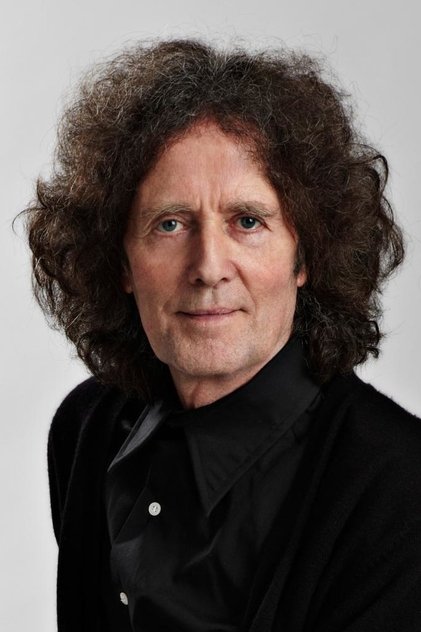
Gilbert O'Sullivan
Born: December 1, 1946
in Waterford, Ireland
in Waterford, Ireland
Raymond Edward "Gilbert" O'Sullivan (born 1 December 1946) is an Irish singer-songwriter who experienced success during the early 1970s with songs such as "Alone Again (Naturally)", "Clair", and "Get Down". O'Sullivan's songs are often marked by his distinctive, percussive piano playing style and observational lyrics using word play.
Born in Waterford, Ireland, O'Sullivan settled in Swindon, England, as a child. In 1967, O'Sullivan began his career in music. Worldwide, he has charted 16 top 40 records including six No. 1 songs, the first of which was 1970's "Nothing Rhymed". Across his career, he has recorded 19 studio albums. The music magazine Record Mirror voted him the top UK male singer of 1972. He has received three Ivor Novello Awards, including “Songwriter of the Year” in 1973.
Raymond Edward O'Sullivan was born on 1 December 1946 in Cork Road, Waterford, Ireland. He was one of six children. His mother May ran a sweet shop and his father was a butcher with Clover Meats. The O'Sullivans emigrated due to a job offer in England. The family first moved to Battersea, London when Raymond was seven, before settling in Swindon, Wiltshire a year later. Raymond began playing piano here, later explaining: "I come from a working-class background, but we always had a piano, the thinking of my parents was that if one of your kids could play it, you could make some money at it." A period of going to piano lessons was short-lived, as O'Sullivan was not enamoured of music theory and played the pieces by ear instead. Raymond's father died two years after the move to Swindon.
Raymond attended St Joseph's Catholic College before studying at Swindon College, specialising in graphic design. Here, he played with several semi-professional bands including the Doodles, the Prefects and was most notably a drummer in a band called Rick's Blues, along with Malcolm Mabbett (guitar), Keith Ray (bass), and founder Rick Davies. Davies, who later founded Supertramp, taught O'Sullivan how to play both drums and piano. O'Sullivan's drumming informed his style of piano-playing, which often utilises a distinct, percussive piano pattern. O'Sullivan has explained, "My left hand is hitting the high hat and the right hand is the snare." He started writing songs, heavily influenced by the Beatles as writers and Bob Dylan as a performer.
In 1967, O'Sullivan moved from Swindon to London in pursuit of a career in music. Determined to get a record deal and looking to stand out, he created an eye-catching visual image consisting of a pudding basin haircut, cloth cap and short trousers. O'Sullivan has said his love of silent film inspired the look. He scored a five-year contract with April Music, CBS Records' house publishing company, after coming to the attention of the professional manager Stephen Shane, who also suggested changing his name from Ray to Gilbert as a play on the name of the operetta composers Gilbert & Sullivan. He was paid an advance of £12 (equivalent to £200 as of 2023), with which he bought a piano. He was signed to CBS Records by the A&R manager Mike Smith, who produced the Tremeloes, the Marmalade and the Love Affair. ...
Source: Article "Gilbert O'Sullivan" from Wikipedia in English, licensed under CC-BY-SA 3.0.
Born in Waterford, Ireland, O'Sullivan settled in Swindon, England, as a child. In 1967, O'Sullivan began his career in music. Worldwide, he has charted 16 top 40 records including six No. 1 songs, the first of which was 1970's "Nothing Rhymed". Across his career, he has recorded 19 studio albums. The music magazine Record Mirror voted him the top UK male singer of 1972. He has received three Ivor Novello Awards, including “Songwriter of the Year” in 1973.
Raymond Edward O'Sullivan was born on 1 December 1946 in Cork Road, Waterford, Ireland. He was one of six children. His mother May ran a sweet shop and his father was a butcher with Clover Meats. The O'Sullivans emigrated due to a job offer in England. The family first moved to Battersea, London when Raymond was seven, before settling in Swindon, Wiltshire a year later. Raymond began playing piano here, later explaining: "I come from a working-class background, but we always had a piano, the thinking of my parents was that if one of your kids could play it, you could make some money at it." A period of going to piano lessons was short-lived, as O'Sullivan was not enamoured of music theory and played the pieces by ear instead. Raymond's father died two years after the move to Swindon.
Raymond attended St Joseph's Catholic College before studying at Swindon College, specialising in graphic design. Here, he played with several semi-professional bands including the Doodles, the Prefects and was most notably a drummer in a band called Rick's Blues, along with Malcolm Mabbett (guitar), Keith Ray (bass), and founder Rick Davies. Davies, who later founded Supertramp, taught O'Sullivan how to play both drums and piano. O'Sullivan's drumming informed his style of piano-playing, which often utilises a distinct, percussive piano pattern. O'Sullivan has explained, "My left hand is hitting the high hat and the right hand is the snare." He started writing songs, heavily influenced by the Beatles as writers and Bob Dylan as a performer.
In 1967, O'Sullivan moved from Swindon to London in pursuit of a career in music. Determined to get a record deal and looking to stand out, he created an eye-catching visual image consisting of a pudding basin haircut, cloth cap and short trousers. O'Sullivan has said his love of silent film inspired the look. He scored a five-year contract with April Music, CBS Records' house publishing company, after coming to the attention of the professional manager Stephen Shane, who also suggested changing his name from Ray to Gilbert as a play on the name of the operetta composers Gilbert & Sullivan. He was paid an advance of £12 (equivalent to £200 as of 2023), with which he bought a piano. He was signed to CBS Records by the A&R manager Mike Smith, who produced the Tremeloes, the Marmalade and the Love Affair. ...
Source: Article "Gilbert O'Sullivan" from Wikipedia in English, licensed under CC-BY-SA 3.0.
Movies for Gilbert O'Sullivan...
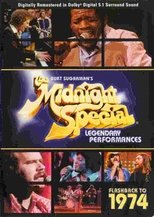
Title: The Midnight Special Legendary Performances: Flashback to 1974
Character: Self (archive footage)
Released: January 1, 2007
Type: Movie

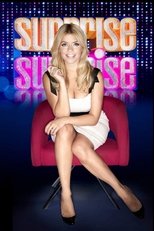
Title: Surprise, Surprise
Character: Self - Performer
Released: May 6, 1984
Type: TV
Surprise, Surprise is a British television programme originally hosted by Cilla Black and produced by London Weekend Television for ITV. It ran for 14 series from 6 May 1984 to 5 September 1997, after which four annual specials were produced between 1998 to 2001.
In 2012, the show returned after a 11-year hiatus. The revived version is produced by ITV Studios and presented by Holly Willoughby. The show is currently in its second series.


Title: Wogan
Character: Self
Released: May 4, 1982
Type: TV
Wogan is a British television chat show

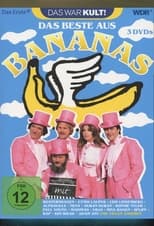



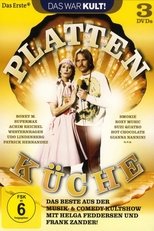


Title: Les Rendez-vous du dimanche
Character: Self
Released: January 12, 1975
Type: TV
A talk show presented by Michel Drucker

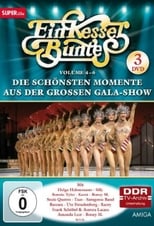
Title: A Kettle of Colour
Character: Self
Released: January 29, 1972
Type: TV
The show was meant to compete with those on West German television. To this end it was fairly successful even attracting a following in parts of West Germany which could receive Eastern TV. Its production values were high. Apart from song and dance numbers and appearances from East German celebrities, almost every broadcast featured well-known stars from the west, often after their popularity had peaked in their home countries.

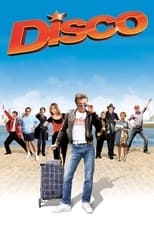
Title: Disco
Character: Self
Released: February 13, 1971
Type: TV
Disco was a pop music program that aired in Germany on the ZDF network from 1971 to 1982. It generally aired on the first Saturday of each month at 7:30PM, each show running 45 minutes. 133 shows were produced. The show was hosted by German actor and comedian Ilja Richter. Its lesser known predecessor on ZDF, 4-3-2-1 Hot & Sweet was aired between 1966 and 1970, presenters included Ilja Richter and Suzanne Doucet. Disco generally served a younger pop-oriented audience compared to ZDF's Hitparade, and until 1972, its main competitor was Beat-Club, followed by Musikladen, both on ARD.
Repeats of Disco have been aired since 1984 on ZDF Musikkanal, after its closedown in 1989 on 3sat. Since 2004, the digital ZDF Theaterkanal aired repeats of the entire series. In 2007, ZDF Dokukanal began to air reruns, starting with episodes from 1975 and also multiple repeats of the series have been shown on hit24 in 2008.
The show focussed on chart hits current at the time of airing, giving about equal airtime to international pop music and German Schlager. Despite its name, it did not particularly focus on disco music although it featured many disco hits as long as they were chart relevant..


